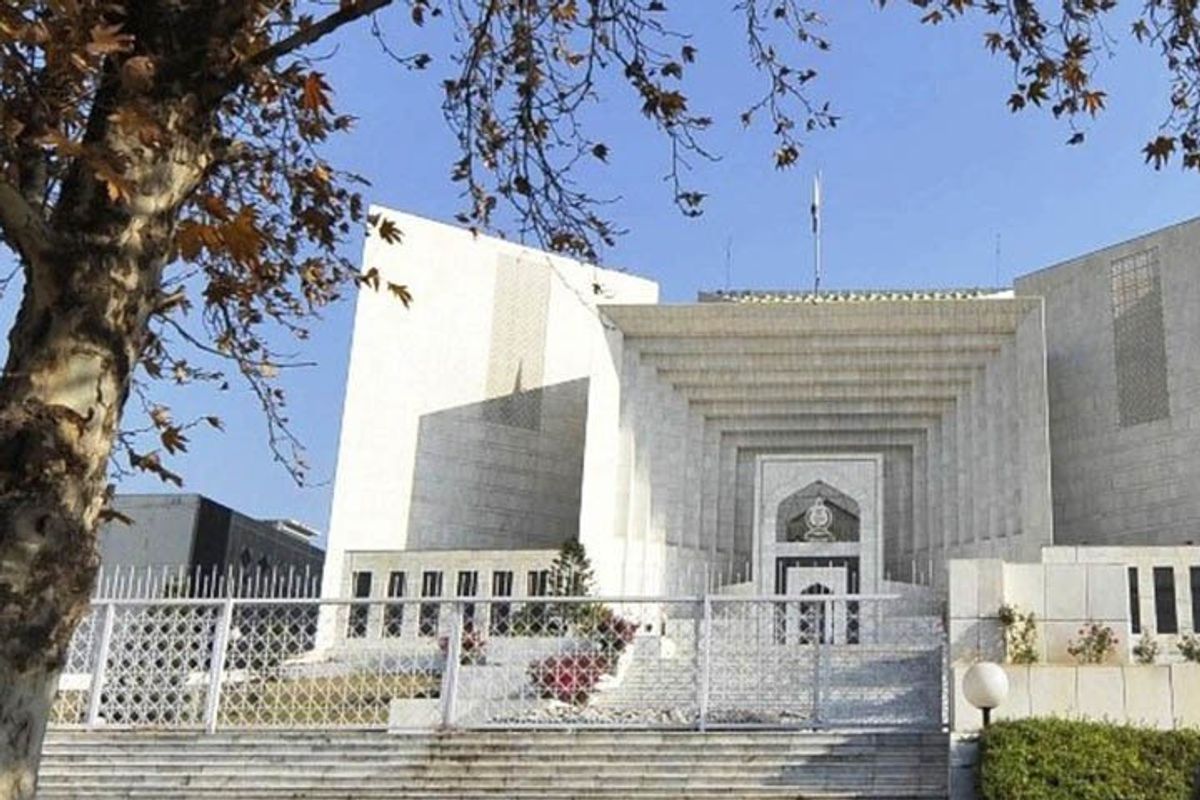‘Changes to Election Act will not impact reserved seats ruling’, says Pakistan’s top court
Former ECP Secretary Kanwar Dilshad questions feasibility of implementing Supreme Court’s clarification

Aamir Abbasi
Editor, Islamabad
Aamir; a journalist with 15 years of experience, working in Newspaper, TV and Digital Media. Worked in Field, covered Big Legal Constitutional and Political Events in Pakistan since 2009 with Pakistan’s Top Media Organizations. Graduate of Quaid I Azam University Islamabad.

A file view of the Supreme Court building in Islamabad.
AFP
The Supreme Court (SC) of Pakistan on Friday reiterated the Election Commission of Pakistan (ECP) to adhere to the ruling concerning reserved seats for Pakistan Tehreek-e-Insaf (PTI) in its letter and spirit, explicitly stating that no further clarifications are necessary.
The eight-member bench emphasized that the decision rendered on July 12 cannot be invalidated through the retroactive application of amendments made to the Elections Act.
In a two-page clarification issued today, the SC reaffirmed that its majority judgment is binding under Article 189 of the Constitution and must be implemented accordingly.
“The amendments made in the Elections Act after the release of our short order will have no bearing and the commission is bound to implement the judgment passed by the Supreme Court of Pakistan,” the judges remarked.
The court reiterated that amendments made after the short order do not affect the original decision, underscoring that the ECP is obliged to enforce the ruling.
“The detailed reasons have already been released, and all legal and constitutional issues raised and argued by the parties have been dealt with eloquently and answered; therefore, no further clarification is required to be issued,” the judges stated.
Highlighting the binding nature of their ruling, the court invoked Article 189 of the Constitution, which mandates that decisions of the top court have a binding effect.
“The judgment of this Court has binding effect in terms of Article 189 of the Constitution of the Islamic Republic of Pakistan, 1973, and should have been implemented,” the judges noted.
The court's order was designed to ensure the electorate’s right to proportional representation through political parties in reserved seats, referencing paragraphs (d) and (e) of clause (6) of Article 51 and paragraph (c) of clause (3) of Article 106 of the Constitution.
In its clarification application, the ECP argued that the short order was based on a law that has since been altered by amendments to Sections 66 and 104 of the Elections Act, 2017, with the insertion of a new Section, 104-A, taking effect retroactively.
Conversely, PTI contended that the short order is rooted in the interpretation and enforcement of constitutional provisions, and thus, the amendments cannot nullify its effects.
Skepticism over implementation
Former Secretary of the ECP, Kanwar Dilshad, while speaking to Nukta, expressed skepticism about the ECP’s ability to implement the SC's clarification.
“Eight judges of the Supreme Court only issued clarification regarding the July 12 judgment. The ECP has already challenged that order with a plea that the order of the eight judges was not in accordance with the law and constitution. The Supreme Court should constitute a new bench to review the Election Commission's plea,” he said.
As per Article 189, “Any decision of the Supreme Court shall, to the extent that it decides a question of law or is based upon or enunciates a principle of law, be binding on all other courts in Pakistan.”
Sadiq's letter to ECP
In his first letter to the ECP on September 19, Speaker for Pakistan's National Assembly Sardar Ayaz Sadiq stated that the Supreme Court's judgment on reserved seats “cannot be implemented under the Amended Election Act, 2017.”
He warned that actions undermining Parliament's independence could damage public trust in institutions. The letter argued that the amended Election Act, enacted after the Supreme Court's decision, rendered the previous ruling on reserved seats inapplicable within the new legal framework.
Sadiq emphasized that the amended legislation supersedes the earlier ruling, a point acknowledged by the Supreme Court. He also highlighted the ECP's legal duty to respect laws passed by Parliament. Furthermore, he asserted that independent candidates who have joined a political party should not be allowed to switch parties under the amended Election Act, as the Supreme Court's judgment was based on legislation that has since been amended.










Comments
See what people are discussing